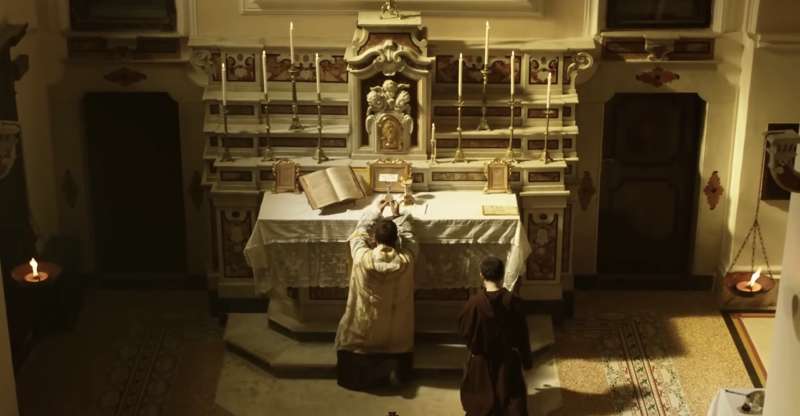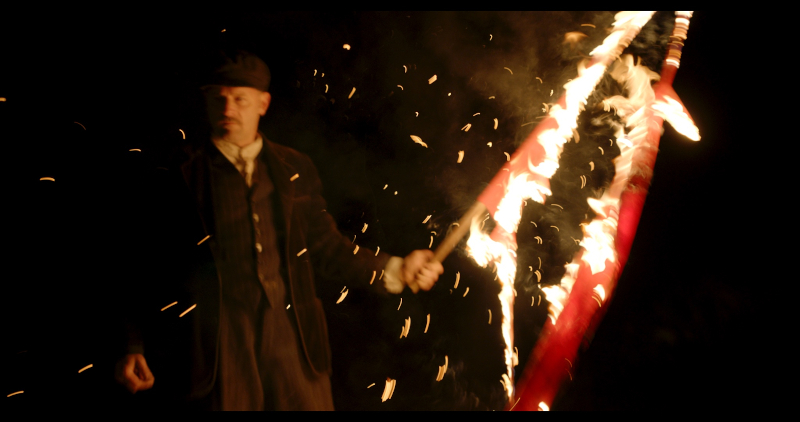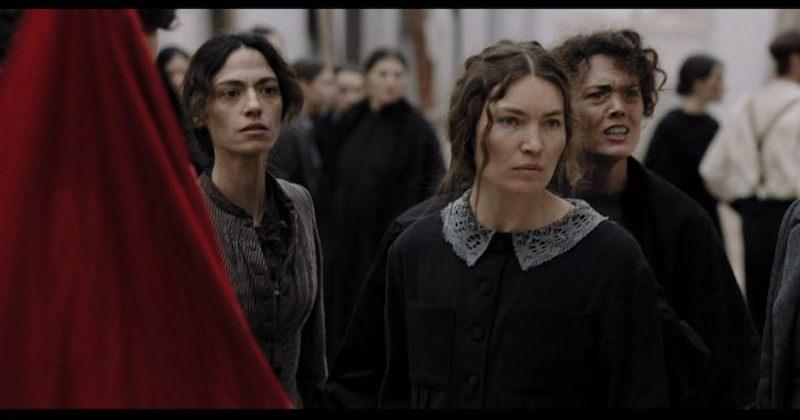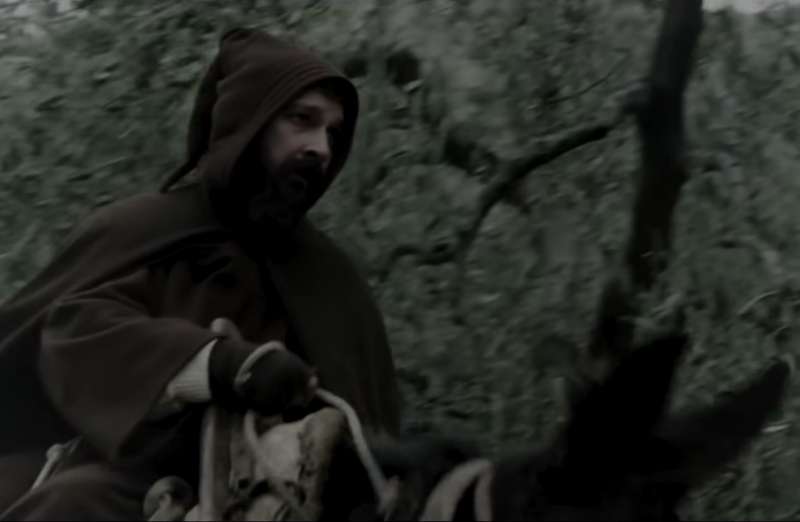Director – Abel Ferrara – 2022 – Germany, Italy – Cert. 15 – 104m
***1/2
Post-WW1, In San Giovanni Rotondo, Italy, a Catholic mystic undergoes temptation while down in the village, armed landowners and military officers attempt to halt the rising tide of socialism – out on Blu-ray, DVD & DL from Monday, March 11th
Ferrara has long been something of an outsider, working with small budgets. This current offering is highly uneven, very strong and moving in places, betrayed by a lack of planning and resources in others. Perhaps its besetting sin (to use Christian religious parlance) is that it doesn’t deliver exactly what it sets out to: this is not exactly a portrait of early 20th Century, Catholic mystic Pio (Shia LaBeouf). The friar really only forms half of the film – arguably its weaker half – dealing only intermittently with his life from arrival in the impoverished Italian village of San Giovanni Rotondo in 1916 through to his visitation by Jesus and first manifestation of stigmata some years later.

The other half of the film, running in parallel to this, deals with the aftermath of World War One in that same village, as men return from the Front to be reunited with wives and mothers. This does not apply, however, to the wife of Julio, who does not return and of whom there is no official military death notice. She must fend for her two pre-teenage children on her own, without a man around. Meanwhile, rich boy Luigi (Vincenzo Crea) has returned from university a socialist, filling the heads of the locals with ideas about how landowners are stealing from them by not paying enough for the work they carry out for them.
Post-war, Italy’s first free elections loom, and socialist candidate Angelo (Ermanno de Biagi) is in with a very real chance of winning. Luigi has alienated himself from his people, the well-off local landowner Renato (Brando Pacito) and military officer classes represented by the likes of Bruno, who want things to continue as they were before the war. However, the spirit of Italian nationalism is growing in the minds of the lower classes, who believe that a more equitable society is within reach. The only way the landowners will be able to prevent this will be through a combination of declaring elections unlawful and imposing their rule by violence and repression.

Although they are happening in loosely the same geographical area – Pio is in a monastery half way up the local mountains while the village is presumably somewhere more accessible lower down the slopes – it’s never made very clear – the two plot strands don’t really cross. Pio is seen to minister the sacrament to wealth and poor congregants alike, but we never see him preaching anything resembling Christ’s teachings about woe and punishment being heaped upon rich people, or participating in any sort of political activity springing from his faith. Instead, Ferrara and LaBeouf focus on the ‘spiritual’, i.e. contemplation, prayer and temptation. This being a Ferrara movie, he provocatively throws in a nude woman to play a temptress / Satan tormenting the devout Pio. It seems ill-judged, a little too much of a provocation for provocation’s sake, lacking the effectiveness of the corrupt cop in Bad Lieutenant (1992) being confronted by Jesus. Perhaps its lowest point is when LaBeouf, presumably improvising, shouts, “shut the fuck up, say Christ is Lord” at the attractive-looking demon.
Similar problems occur when armed landowners and military confront the socialist election victors, with actors improvising such unconvincing lines for the officers as, “I’m going to take your flag and stick it up your ass.” If you can get past such faux pas, though, the images pack a punch. The village sequences are shot in near monotone with much of the colour drained out, and the free-flowing sequences such as the return of the soldiers to the village at the start and the massacre of the election victors by the upset, and armed landowner class losers both pack a genuine punch. So too does a sequence where an older man on a hillside is worked to death pulling a heavy load of rocks, and the attempt by the foreman to repress any resulting insurrection before it can happen.

There are genuine religious and political ideas being expressed here, but the film seems unable to work though them together in any coherent, integrated way, keeping the concerns of the ‘spiritual’ and the ‘political’ sealed off from one another. Perhaps that’s part of the way it was back there and then; the 1960s Liberation Theology of Latin America was a long way off in terms of both time and place within Catholic thought. LaBeouf, meanwhile, perhaps because of the inevitable baggage of his prior career, fails to convince as the spiritual mystic. And yet, those parts of the film that do work prove highly effective, such as the scene where a priest from Pio’s monastery blesses the guns of the soldiers who will shortly use them to massacre the socialist upstarts. If you want an image of the Church failing to follow the teachings of its founder, look no further. Altogether, a very mixed bag. The parts that work work very well indeed, while the parts that fail fail spectacularly.
The film closes with the legend:
Dedicated to the victims of the massacre of San Giovanni Rotondo
October 14 1920
And to the people of Ukraine
Padre Pio is out on Blu-ray, DVD & DL from Monday, March 11th following its release in cinemas in the UK on Friday, January 26th 2024.
Trailer:
